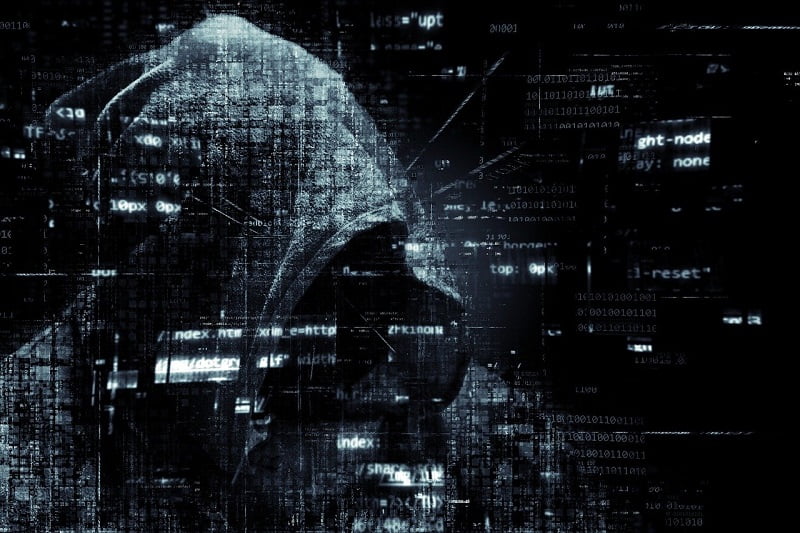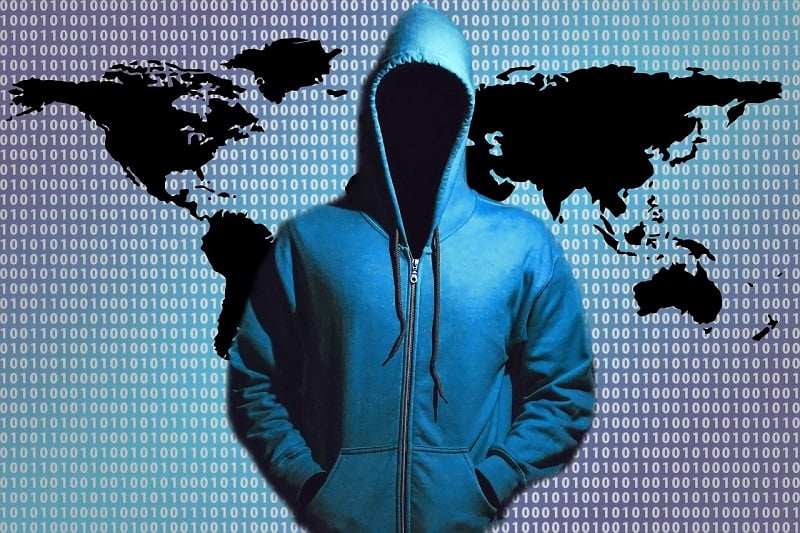
The US Puts $10 Million Bounty on Russian Hacker’s Head
In recent news, the United States has taken a firm stance against cybercriminals involved in ransomware attacks. The US Department of the Treasury has sanctioned Mikhail Matveev, a Russian hacker responsible for launching cyberattacks against US law enforcement, businesses, and critical infrastructure. As a result, the US District Courts for the District of New Jersey and the District of Columbia have unsealed indictments against Matveev, and the US Department of State has put forth a remarkable $10 million reward for information that leads to his arrest or conviction.
The Treasury Department’s statement not only highlights the actions taken against Matveev but also exposes Russia’s role as a safe haven for ransomware actors, enabling cybercriminals like Matveev to operate. Matveev has contributed to the development and deployment of Russia-linked ransomware variants, including Hive, LockBit, and Babuk, which collectively caused millions of dollars in losses. The wide-ranging targets of these ransomware attacks include hospitals, school districts, financial firms, and critical infrastructure in more than 80 countries.
Moreover, the US Department of State has offered a substantial $10 million reward for any information that leads to Matveev’s arrest or conviction. This significant bounty showcases the severity of the charges against Matveev and underscores the determination of US authorities to bring him to justice.
Russian Ransomware Connections
Matveev’s involvement in the development and deployment of various Russia-linked ransomware variants highlights the interconnected nature of cybercrime. Three notable ransomware variants associated with Matveev are Hive, LockBit, and Babuk.
Hive, one of the ransomware variants, has caused havoc globally, targeting more than 1,500 victims across 80 countries. The victims range from hospitals and school districts to financial firms and critical infrastructure. Hive’s sophisticated techniques and widespread impact have made it a significant concern for cybersecurity experts.
LockBit, another ransomware strain connected to Matveev, has been responsible for numerous high-profile attacks. It utilizes advanced encryption methods to hold victims’ data hostage until a ransom is paid. These attacks have resulted in substantial financial losses and significant disruption to affected organizations.
Babuk, yet another Russia-linked ransomware variant, has been known for its aggressive tactics. It not only encrypts victims’ files but also threatens to leak sensitive data if the ransom demands are not met. Babuk’s activities have targeted a range of sectors, including healthcare, education, and government institutions.
The connection between Matveev and these ransomware variants showcases the intricate network of cybercriminals collaborating to develop and deploy malicious software. Such partnerships enable these actors to exploit vulnerabilities and cause widespread damage and financial losses.

Scope of Ransomware Attacks
Ransomware attacks have emerged as a significant threat to organizations and individuals worldwide. These attacks target various sectors and can have severe consequences for the affected entities. Understanding the scope and impact of ransomware attacks is crucial in comprehending the urgency behind the US government’s response.
Hospitals, for instance, have become prime targets for ransomware attacks. The disruption of healthcare services not only endangers patient care but also puts lives at risk. Educational institutions, such as school districts, have also fallen victim to these attacks, hindering the learning process and compromising sensitive student data.
Financial firms, another vulnerable sector, face the risk of financial loss, compromised customer data, and reputational damage. Ransomware attacks on critical infrastructure, including power grids and transportation systems, can have far-reaching consequences, affecting the functioning of entire cities or regions.
The global nature of ransomware attacks is evident from the large number of countries affected. Over 80 countries have reported being targeted by various ransomware strains, emphasizing the need for international cooperation in combating this menace.
US Response
The United States has taken a firm stance against ransomware attacks, recognizing the significant threat they pose to its people and institutions. The response has been multidimensional, employing various authorities and tools to defend against cyber threats and hold ransomware actors accountable for their crimes.
In the case of Matveev, the US Department of the Treasury has imposed sanctions that require all property and interests in the United States or in the possession or control of US persons to be blocked and reported to the Office of Foreign Assets Control (OFAC). This action aims to disrupt Matveev’s financial resources and impede his ability to carry out further attacks.
Additionally, individuals who engage in certain transactions with Matveev may also face sanctions from the Treasury Department. These measures send a clear message that the United States will not tolerate any form of collaboration or support for cybercriminals involved in ransomware attacks.
Treasury Department’s Statement
The Treasury Department’s statement not only highlights the actions taken against Matveev but also condemns Russia’s role as a safe haven for ransomware actors. The department’s scathing attack on Russia’s enabling of cybercriminals like Matveev reflects the seriousness with which the US government views this issue.
The Treasury Department’s statement describes Russia as a haven for ransomware actors, emphasizing its role in enabling cybercriminals to operate freely. This accusation underscores the need for international cooperation in combating cyber threats and holding accountable those who support or harbor individuals involved in ransomware attacks.
The statement also brings attention to the specific ransomware variants associated with Matveev’s activities. Hive, LockBit, and Babuk, all connected to Russia, have collectively caused substantial financial losses and disrupted critical services worldwide. By highlighting these variants, the Treasury Department aims to raise awareness about the breadth and severity of the threat posed by Russian-linked ransomware.
Under Secretary of the Treasury for Terrorism and Financial Intelligence, Brian E. Nelson, expressed the United States’ unwavering commitment to holding ransomware actors accountable for their crimes. Nelson emphasized that the US government will utilize all available authorities and tools to defend against cyber threats and ensure the safety and security of its people and institutions.
Sanctions and Consequences
The sanctions imposed on Matveev have significant implications for his financial activities and personal freedom. As a designated individual, all his property and interests within the United States, as well as those in the possession or control of US persons, must be blocked and reported to the Office of Foreign Assets Control (OFAC). This measure aims to prevent Matveev from utilizing any resources within US jurisdiction to support or further his criminal activities.
Furthermore, individuals who engage in certain transactions with Matveev may face sanctions themselves. This serves as a deterrent for anyone considering providing financial or material support to individuals involved in ransomware attacks. The Treasury Department’s strict approach sends a clear message that collaboration with cybercriminals will not be tolerated, and those involved will face severe consequences.
Defense Against Cyber Threats
The United States recognizes the urgent need to defend against cyber threats, including ransomware attacks. The government employs various tools and authorities to strengthen its cybersecurity measures and protect its critical infrastructure, businesses, and citizens.
In addition to imposing sanctions, the United States actively collaborates with international partners to share intelligence and combat cyber threats collectively. This collaboration enhances the effectiveness of cybersecurity efforts by leveraging the expertise and resources of multiple nations.
Public awareness and education also play a vital role in defense against ransomware attacks. The government, in partnership with cybersecurity experts, educates the public about the risks of ransomware and provides guidance on preventive measures. By empowering individuals and organizations with knowledge, the aim is to reduce vulnerabilities and create a more resilient cybersecurity landscape.
Future Prospects
The evolving nature of ransomware attacks necessitates constant vigilance and adaptation in cybersecurity strategies. As technology advances, cybercriminals find new ways to exploit vulnerabilities and launch sophisticated attacks. To effectively combat these threats, continuous innovation and collaboration among governments, organizations, and individuals are crucial.
The United States remains committed to staying at the forefront of cybersecurity efforts. It will continue to invest in research and development, foster international partnerships, and implement robust policies and regulations to protect its interests and combat cyber threats.
In conclusion, the United States’ response to ransomware attacks, exemplified by the sanctions placed on Mikhail Matveev, demonstrates its firm commitment to holding cybercriminals accountable. The Treasury Department’s condemnation of Russia’s role as a haven for ransomware actors underscores the need for global cooperation in combating cyber threats. By employing various measures and tools, the United States aims to defend its people, institutions, and critical infrastructure against the ever-evolving menace of ransomware attacks.
For more information on the US government’s response to ransomware attacks and cybersecurity measures, please visit the Department of Homeland Security’s Cybersecurity and Infrastructure Security Agency (CISA) and the Federal Bureau of Investigation (FBI) websites.



